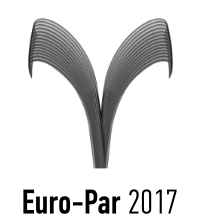The success of Cloud Computing has driven the advent of the Utility Computing (UC) paradigm. Cloud Computing is not a concept anymore, but a reality with many providers around the world. The use of massive storage and computing resources accessible remotely in a seamless way has become essential for many applications in various areas. Cloud Computing evolved from Cluster Computing where for the latter dedicated resources are usually involved.
While significant progresses have been achieved in the past decade, the complete adoption of the UC paradigm is still facing important challenges. Beyond the scene, most of Cloud Computing solutions rely on federations of large-scale clusters where well-known but still unsolved challenges related to performance, reliability and energy efficiency of the infrastructures should be addressed by research. Moreover, Cloud Computing emphasized the importance of fundamental capabilities and services that are required to achieve the goal of user-friendly, security and service guarantees. Our community should also investigate these aspects.
Finally, there are important trends as going from large centralized infrastructures to smaller ones massively distributed at the edge of the network, and also to execute High Performance Computing applications on Clouds. The first referred as ‘’fog/edge’’ computing, such a dawning paradigm is attracting growing interests as it brings computing resources closer to end-users, tackling the network overhead issues that prevent the use of the UC paradigm by latency-aware applications. The second still needs a large research effort, to allow the use of compute and network intensive applications without loss of performance on Clouds.
Reproducibility: aiming to increase the level of reproducibility and replicability of results, authors of technical papers are invited to volunteer to publish their methodology, code and data with the paper, if their paper is accepted.
Focus
- Cloud middleware
- Cloud-enabled applications and platforms
- Interoperability and portability
- Aggregation and federation of clouds<
- Hybrid, Fog and Edge computing
- Efficient energy usage of resources
- Resource/Service/Information discovery
- Resource management and scheduling
- Cloud programming models, tools, and algorithms
- Dependability, adaptability, and scalability
- Security and privacy for clouds
- Workflow management
- Accounting, billing and business models
- Automated or autonomic management of resources and applications
- Quality-of-Service and Service-Level-Agreement in clouds
- High Performance Computing on Clouds
Committee
Chair: Alfredo Goldman (University of São Paulo, Brasil)
Local chair: Patricia González (University of A Coruña, Spain)
Laura Ricci (University of Pisa, Italy)
Luiz Bittencourt (University of Campinas, Brasil)
Ian Foster (Argonne National Laboratory, USA)
Frèderic Desprez (INRIA, France)
Ivona Brandic (Technische Universität Wien, Austria)
Giorgio Lucarelli (INRIA, France)
Rizos Sakellariou (University of Manchester, UK)
Ramón Doallo (University of A Coruña, Spain)
